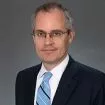On April 11, a divided panel of the Seventh Circuit set a so-called "excessive fee" case on track for trial, by reversing in part the district court's decision to grant summary judgment for defendants in George v. Kraft Foods Global, Inc., No. 10-1469 (7th Cir.). On May 26, the appeals court denied the defendants' request to revisit its decision. The opinion is available here.
The litigation was brought by participants of a 401(k) plan against the plan's sponsor and various individuals affiliated with the plan sponsor, as well as the relevant corporate committee that was responsible for overseeing the plan. The plan had between 37,000 and 55,000 participants and $2.7 billion and $5.4 billion in assets during the time of the challenged actions. After earlier having certified the case as a class action, the district court thereafter ended the case in its entirety by granting summary judgment to all defendants. An appeal followed. A panel of the Seventh Circuit reversed the decision, in part, thereby setting the case on track for trial, unless further appeals are allowed or the case is resolved by the parties.
After addressing a few procedural issues, the Seventh Circuit focused on three substantive questions. First, the court reversed summary judgment as to whether the defendants acted prudently in continuing the company stock fund as a unitized fund without any trading limit, even after a related plan sponsor switched its company stock fund from a unitized to real time traded fund. The plaintiffs argued that maintaining the fund under a unitized accounting structure caused $83.7 million in harm to participants over a seven-year period, through so-called "investment drag" and "transactional drag" – the alleged inability of fund participants to fully capture appreciation in the employer's stock where 5% of the fund was invested in a cash buffer, and the alleged deleterious effect on all fund participants where the fund as a whole incurred trading costs necessitated by effectuating trades directed by a few participants who actively traded. The court held that the defendants were not entitled to summary judgment because they introduced no evidence that they made a conscious decision to maintain the unitized stock fund structure after their former parent company switched their fund away from a unitized accounting method, and that there was no evidence that the difference between unitized and real time traded funds was merely trivial.
Second, and of the most potential relevance to the largest number of plan sponsors and their service providers, the court reversed summary judgment as to whether defendants acted prudently in paying recordkeeping fees of between $43-$65 per participant per year where the defendants had not initiated an RFP for recordkeeping services since 1995. The defendants and the court below relied on the assessment of the defendants' consultant that the fees were reasonable. The Seventh Circuit held that the lower court erroneously discounted the plaintiffs' industry expert, who opined that it was imprudent not to get market prices every three years, and that the plan paid approximately twice as much as it should have for recordkeeping services. According to the Seventh Circuit panel, a fiduciary's reliance on a consultant may be evidence of prudence, but is not itself sufficient to establish prudence. The court also explained that the defendants appeared to not follow a recommendation by their consultant that as the plan size grew, recordkeeping fees should be reduced. For a discussion by Goodwin Procter partner Jamie Fleckner and Analysis Group economist Lee Heavner criticizing the court's decision on legal and economic principles, see " Seventh Circuit Creates Uncertainty About 401(k) Provider RFPs," 100 Pensions & Benefits Daily (BNA), May 24, 2011.
Third, the court affirmed summary judgment as to whether the defendants breached their fiduciary duties by failing to monitor the so-called "float" income earned by the plan's bank trustee on uninvested assets, and thereby failed to monitor whether the fees were reasonable. The court held that it was unrebutted that the trustee sent annual statements of its float income to defendants. As such, and in the absence of contrary evidence, the court could properly assume that the defendants were aware of the trustee's float income.
Goodwin Procter LLP is one of the nation's leading law firms, with a team of 700 attorneys and offices in Boston, Los Angeles, New York, San Diego, San Francisco and Washington, D.C. The firm combines in-depth legal knowledge with practical business experience to deliver innovative solutions to complex legal problems. We provide litigation, corporate law and real estate services to clients ranging from start-up companies to Fortune 500 multinationals, with a focus on matters involving private equity, technology companies, real estate capital markets, financial services, intellectual property and products liability.
This article, which may be considered advertising under the ethical rules of certain jurisdictions, is provided with the understanding that it does not constitute the rendering of legal advice or other professional advice by Goodwin Procter LLP or its attorneys. © 2011 Goodwin Procter LLP. All rights reserved.


